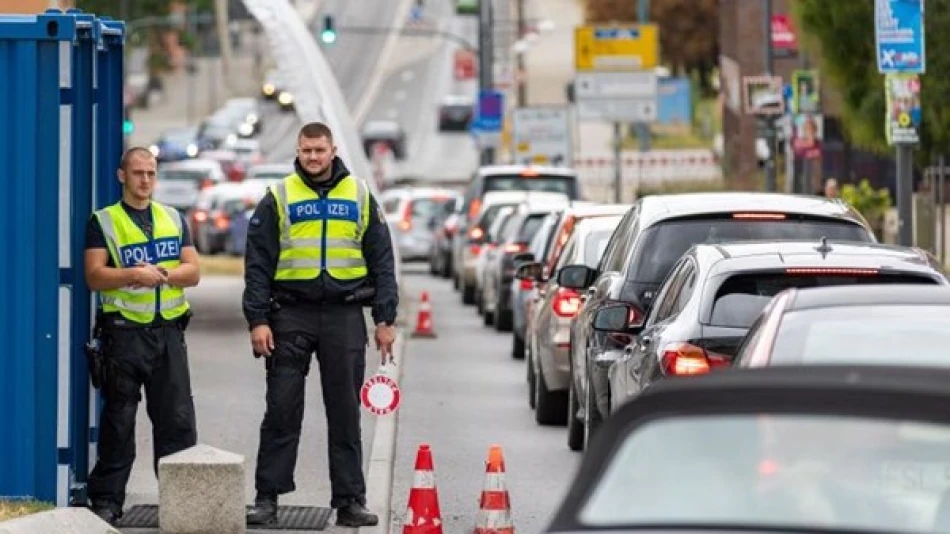
Germany Spent €80.5M on Border Surveillance Ops, Revealing Hefty Price Tag
Germany's Border Control Experiment Costs Taxpayers €80.5 Million in Ten Months
Germany has spent €80.5 million on land border controls since implementing temporary restrictions in mid-September 2024, raising questions about the long-term financial sustainability of suspending Schengen free movement principles. The hefty price tag, dominated by overtime compensation for federal police, highlights the economic burden of tightening border security in an era of rising migration pressures across Europe.
Breaking Down the Border Bill
According to data from Germany's Interior Ministry, obtained through a parliamentary inquiry by Left Party MP Clara Bunger, the quarterly costs of deploying federal police to internal borders ranged between €24 million and €29.1 million. The spending breakdown reveals where taxpayer money is flowing in this unprecedented peacetime border operation.
Overtime Takes the Lion's Share
The largest expense category was overtime compensation, consuming €37.9 million of the total budget—nearly half of all border control costs. This figure underscores the strain on Germany's federal police force, which has had to dramatically expand operations across multiple border crossings while maintaining regular duties.
Between April and June 2025 alone, additional operational costs included €8 million for meals and hotel accommodation for federal police officers, and nearly €3 million for "unsocial hours" allowances—compensation for working nights, weekends, and holidays.
Infrastructure and Administrative Burden
The government allocated €2.6 million for "administrative and operational resources," while nearly €2 million went toward operating border facilities. These figures suggest Germany has had to rapidly scale up physical infrastructure and bureaucratic processes to handle the increased border activity.
Europe's Schengen Dilemma
Former Interior Minister Nancy Faeser introduced these controls as a "temporary exception" to Schengen Area free movement rules, but the mounting costs raise questions about how temporary such measures can realistically remain. Germany joins a growing list of European nations—including France, Austria, and Denmark—that have reimposed border checks in recent years, citing security and migration concerns.
The Domino Effect Across Europe
Germany's move represents the most significant challenge to Schengen principles since the 2015 migration crisis. As Europe's largest economy and most populous country, German border controls create ripple effects throughout the continent, potentially encouraging other nations to follow suit and further fragmenting the free movement zone that has been a cornerstone of European integration since 1995.
Economic vs. Political Calculus
The €80.5 million price tag may seem modest compared to Germany's overall federal budget, but it represents just the direct costs of border operations. Indirect economic impacts—including delays for cross-border workers, increased logistics costs for businesses, and potential tourism disruption—remain largely unmeasured but could multiply the true economic burden.
For German policymakers, the financial cost must be weighed against political pressures from voters concerned about irregular migration and security threats. With federal elections approaching, the border control policy serves as a visible demonstration of government action, even as it challenges fundamental EU principles.
Sustainability Questions
At the current spending rate, Germany's border controls could cost over €100 million annually—a significant ongoing expense that would require permanent budget allocation. This financial reality may force policymakers to either accept the costs as a new normal or seek alternative approaches to address the underlying migration and security concerns driving the policy.
The German experience offers a concrete case study for other European nations considering similar measures, demonstrating that suspending Schengen comes with a substantial and ongoing price tag that extends far beyond the initial political decision.
Most Viewed News

 Layla Al Mansoori
Layla Al Mansoori






